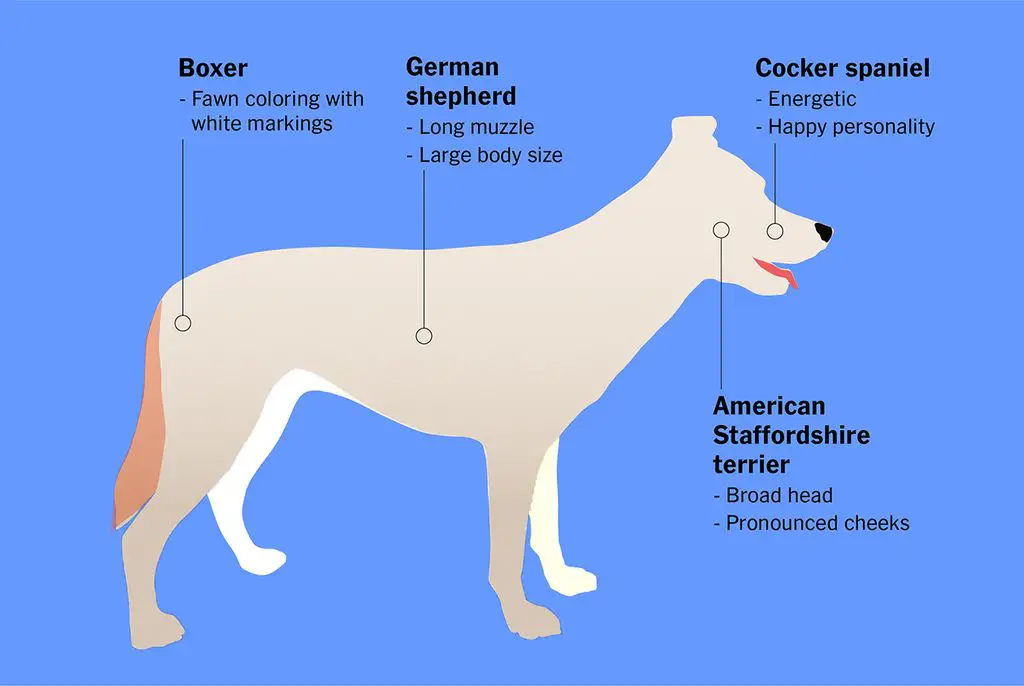Introduction
Dog DNA tests have become increasingly popular in recent years as more pet owners seek to gain deeper insights into their pets’ genetics and backgrounds. Commercial dog DNA tests let owners learn about everything from breed ancestry to general health, disease risk, and even behavioral tendencies. With a simple cheek swab – the most common sampling method used – companies can analyze a dog’s DNA and provide personalized results. The rise in popularity of at-home dog DNA testing is thanks largely to major companies like Wisdom Panel and Embark Veterinary, which have simplified what used to be complex genetic testing processes.
While regular genetic health screenings performed by vets remain crucially important, dog DNA kits provide a convenient and affordable way for owners to uncover general information that can supplement vet care. Some people use the tests purely out of curiosity about their dog’s breed makeup, while others look to the tests for actionable health insights. However, experts disagree on how useful and reliable some of the findings may actually be.
Purpose of Dog DNA Tests
Dog DNA tests have become increasingly popular among pet owners in recent years. There are two main purposes for these tests:
Determine Breed Makeup
One of the main reasons owners choose to test their dog’s DNA is to determine the breed makeup. These tests can identify the percentages of different breeds in a dog’s ancestry. This allows owners to learn more about their mixed breed dogs.

Breed identification from DNA testing can provide insight into a dog’s possible physical traits, temperament, and health tendencies. Knowing the breed background allows owners to better understand their pet.
Screen for Genetic Diseases
Some DNA tests also screen dogs for certain genetic mutations and diseases. These tests can check for issues like progressive retinal atrophy, degenerative myelopathy, von Willebrand’s disease, and over 150 other known canine genetic disorders.
Testing helps owners be aware of any potential health problems their dog may be predisposed to based on their genetics. It allows vets to develop more tailored wellness and prevention plans.
Veterinarian Perspectives
Veterinarians have mixed views on the value of dog DNA tests. While they acknowledge some potential benefits, many also express concerns about the limitations and reliability of these products.
On the positive side, DNA tests may help identify potential health risks or predispositions a dog might have. “Knowing this information early can allow owners to monitor for certain conditions and be proactive with preventative care,” says Dr. Sarah Johnson, a vet in private practice. Breed identification from DNA can also sometimes provide insight into possible medical conditions a mixed-breed dog may be prone to.
However, vets caution that these tests have significant limitations. “These products don’t test for all genetic diseases and can miss mutations a dog might have,” notes Dr. David Lee, a veterinary geneticist. He adds that environment, lifestyle and family history also play a large role. Dr. Lee says many vets worry consumers may make major decisions like euthanasia based on DNA results without consulting a vet, which could be clinically inappropriate.
There is also concern about the reliability of some tests. “We sometimes see breed results that contradict a dog’s physical appearance and characteristics,” says Dr. Johnson. She recommends owners take DNA results as helpful but not definitive information. Consulting a vet is important for interpreting results accurately and creating a proper care plan.
Breed Identification
DNA tests can help identify the breed makeup of mixed breed dogs. However, their accuracy varies widely depending on the number and diversity of breeds in the test database. Tests may only screen for the most popular breeds, missing rare or uncommon breeds in a dog’s ancestry. For purebred dogs, DNA tests are excellent at verifying parentage and pedigree. But for first generation crossbreeds and dogs with very complicated mixed ancestry, breed identification DNA tests can lack precision.
Some DNA tests use proprietary algorithms and breed signature databases built from their own research. Other tests rely on crowd-sourced wisdom of the masses by comparing customer submitted DNA samples against breed registries. Larger databases can mean more accurate results. But if the database lacks enough diversity of samples, rare breeds can be missed.
Veterinarians caution owners not to take breed identification from DNA tests as an absolute result. The tests provide best guesses based on current databases. As the data sets improve over time, so may breed identification accuracy. Owners should view results as one input among others like veterinary assessment, visual identification, and known background in determining their dog’s likely breed makeup.
Health Screening
One of the main benefits touted by dog DNA testing companies is the ability to screen for potential genetic diseases and health concerns. Tests claim to check for hundreds of hereditary conditions that may impact a dog’s health and lifespan.
In theory, this allows owners to be proactive about their dog’s health. If a test detects a predisposition for a certain condition, the owner can have their vet monitor for early signs or even take preventative measures.

However, the usefulness of these results depends on their accuracy. Critics argue that these health screenings produce many false positives – indicating a risk for a disease that never manifests. They also may give false negatives, providing a clean bill of health for what turns out to be an at-risk dog.
These genetic markers are not definitive diagnoses. A genetic predisposition does not guarantee a dog will develop a disease. Environmental and lifestyle factors also play a major role.
Owners should view any positive health screening results as information to discuss with their vet, not a certain fate. And they should continue proper wellness checks even if their dog’s results show low risk across the board.
Behavior Predictions
Canine DNA tests promise to provide insights into a dog’s likely personality traits and behavior based on their breed composition. However, the validity of these predictions is debated among veterinarians and dog experts.
While breeds have been selectively developed for certain purposes (e.g. herding, hunting, guarding), and often exhibit common traits, considerable variation exists. Two dogs of the same breed can have very different personalities based on their distinct life experiences.
A dog’s behavior is shaped by both genetics and environment – including early life experiences, socialization, training, and how they are raised. DNA cannot account for these complex environmental influences that make each dog unique.
Veterinarians caution against making firm conclusions about expected behavior or temperament based on DNA tests alone. Breed is not necessarily destiny when it comes to an individual dog’s personality and actions.
Instead, vets emphasize understanding a dog’s particular upbringing, socialization, medical history, and assessing their temperament through direct interaction and observation over time. While DNA insights may provide clues, a dog’s environment and individual life experiences remain pivotal.
Privacy Concerns
When submitting your dog’s DNA sample for testing, consumers should carefully review the company’s data privacy policies. There is a risk of companies mishandling or misusing the genetic data they collect. DNA contains sensitive information not just about your dog, but potentially about you and your family as well.
Companies should clearly explain how they protect customers’ privacy and security. Make sure the DNA test provider does not share your information without consent, and only retains data as long as necessary. Consumers should be cautious about allowing secondary uses of their pet’s genetic data for research or other purposes.
Additionally, there are concerns regarding the potential for DNA testing companies to be hacked and have their databases compromised. If your dog’s DNA profile falls into the wrong hands, it could lead to identity theft of your pet or worse. Make sure any DNA testing company has robust cybersecurity protections in place.
Cost Considerations
The cost of dog DNA tests can vary widely depending on the features and analysis provided. The most basic breed identification tests start at about $50 to $100 while the most comprehensive health and trait screening tests can cost $150 to $200 or more.

Are these tests worth the cost? Many veterinarians argue that a basic breed DNA test may not provide owners with much meaningful information beyond simple curiosity about their dog’s background. However, tests that screen for genetic diseases and health risks can provide actionable insights to help guide preventative care.
For owners interested in doing everything possible to ensure their dog’s long-term health, the investment in a screening test could provide valuable peace of mind. Catching potential health issues early allows owners to work with their vet to monitor the dog closely and proactively treat any problems that arise.
However, owners should be careful about choosing the right test for their needs. Working with a vet to select the appropriate health screening based on the dog’s breed profile and family history is recommended over choosing the most expensive, comprehensive test available.
Alternatives to DNA Testing
While dog DNA tests have become popular, there are other ways pet owners can determine their dog’s breed, health, and behavior without undergoing genetic testing.
To identify breed, many vets recommend looking at your dog’s physical characteristics and consulting breed identification charts. Certain physical traits like coat color, ear shape, tail type, and body structure can help narrow down possible prominent breeds. Veterinarians can often make an educated guess of a mixed breed’s likely makeup based on appearance alone.
For health screening, vets may recommend targeted tests based on a dog’s age, breed predispositions, and physical symptoms. These can include bloodwork, urinalysis, x-rays, allergy testing, and other diagnostics to check for issues like hip dysplasia, heart conditions, thyroid problems, allergies, and cancers. This tailored approach looks for issues a dog is actually at risk for versus screening for hundreds of random genetic diseases.
As for behavior, veterinarians and dog trainers can evaluate a dog’s temperament through personality assessments. They can then suggest training methods suited to the individual dog’s needs. Pet owners can also look up breed-specific traits to set informed expectations, while remembering that genetics are only part of the equation. Environment and early life experiences also play a major role in shaping behavior.

Conclusion
While DNA tests for dogs can provide some interesting and useful information, there are a few important considerations for owners. Key pros include identifying your dog’s breed makeup, screening for some genetic health conditions, and gaining insight into behavior tendencies. However, there are also limitations around test accuracy, privacy, cost, and alternatives that may work just as well.
Ultimately, a dog DNA test is not medically necessary but could provide supplemental information to owners. Cost and privacy should be weighed, as well as talking to your vet first about whether genetic screening would be beneficial for your particular dog. While breed makeup and trait analysis can be fun, it’s wise to take these with a grain of salt and remember that a dog’s environment and training play a huge role too.
For most owners, investing time and money into proper care, training, and veterinary wellness checks will likely be more important than running a DNA panel. But for those interested in learning more about their dog’s genetics for health or curiosity reasons, DNA tests may be worth considering after a discussion with your veterinarian. Just be an informed consumer when it comes to reading the results.